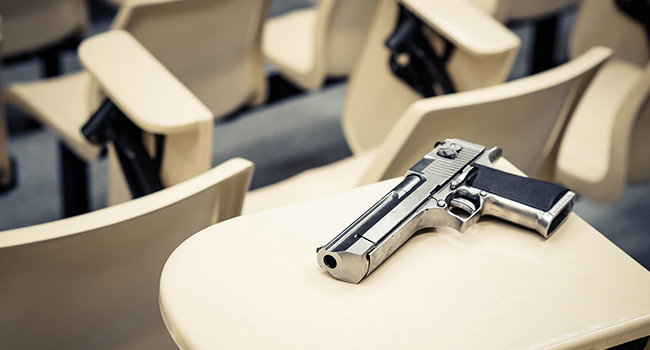
Michigan Legislature Considers School Safety Bills
HB 5852 would create new active-shooter training requirements for law enforcement, and HB 5851 would require school administrators to report all threats and attempted violence to state police.
- By Jessica Davis
- December 14, 2018
The Michigan Legislature is considering multiple proposed bills related to school safety and security. Two of the bills—House Bill 5852 and House Bill 5851—passed out of the Senate Judiciary Committee last week.
HB 5852 would create new active-shooter training requirements for law enforcement, and HB 5851 would require school administrators to report all threats and attempted violence to state police.
"School safety has really been moved to the top of the education agenda," said Larry Johnson, assistant superintendent and executive director of public safety at Grand Rapids Public Schools.
Johnson helped work on school safety recommendations for state legislators.
"There's two types of districts: districts that are coming out of a crisis or one that's getting ready to go into a crisis," Johnson said. "Any district is prone to a school safety incident of any magnitude."
If passed, HB 5851 would require schools to report all threats made against the campus, staff or students. Administrators would report what occurred and how the threat was prevented, and Michigan State Police would compile the reports annually and distribute it statewide. Schools who don’t report threats would forfeit their chance at state grants.
"Having the opportunity to flesh out a lot of the incidents around the state and view some of the things that have occurred, I think it's going to put all of our districts in a better position in the future," Johnson said.
Kent County Sheriff Michelle LaJoye-Young supports the recording and reporting of threats and sees school safety as a collaboration between school administrators and law enforcement.
"We've had multiple somewhat violent threats that have been thwarted because our school resource officer was there. They had a relationship. Somebody felt comfortable talking to them about it," LaJoye-Young said.
A third proposed bill, HB 5828, would create a school safety commission, to be made up of a law enforcement representative, a teacher representative, a school administrator and a mental health professional, among others. Every member would be appointed by the governor.
"It's really difficult for something like that to be done on a statewide board because they don't have real-life information of what's going on today in that school district, (or) today in that community and what might cause a risk," LaJoye-Young said.
HB 5828 has passed the House and a Senate Committee and is headed to the Senate floor for voting.
About the Author
Jessica Davis is the Associate Content Editor for 1105 Media.